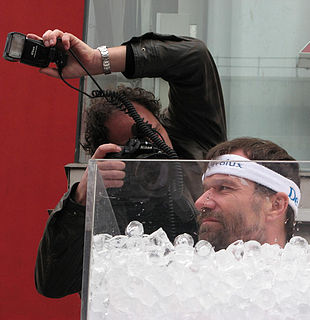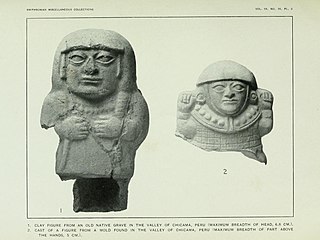A Quote by Galileo Galilei
The nature of the human mind is such that unless it is stimulated by images of things acting upon it from without, all remembrance of them passes easily away.
Related Quotes
No sin is committed merely because a thought enters the mind, provided it is not made welcome. Perhaps we may use the figure that the thought first passes into an anteroom, where it stands before the mind acting as a judge. No matter how sordid or evil, it has not touched the personality with its infamy nor in any way laid guilt upon the soul unless and until the mind acting as judge admits it with a welcome. If the mind decides against it and dismisses it, the personality is not only unsullied but is, on the contrary, by this act of rejection stimulated and strengthened in moral power.
Forgetfulness is necessary to remembrance. Ideas are retained by renovation of that impression which time is always wearing away,and which new images are striving to obliterate. If useless thoughts could be expelled from the mind, all the valuable parts of our knowledge would more frequently recur, and every recurrence would reinstate them in their former place.
Colour, Figure, Motion, Extension and the like, considered only so many Sensations in the Mind, are perfectly known, there being nothing in them which is not perceived. But if they are looked on as notes or Images, referred to Things or Archetypes existing without the Mind, then are we involved all in Scepticism.
Our Nation, a great stage for the acting out of great thoughts, presents the classic confrontation between Locke's views of the state of nature and Rousseau's criticism of them... Nature is raw material, worthless without the mixture of human labor; yet nature is also the highest and most sacred thing. The same people who struggle to save the snail-darter bless the pill, worry about hunting deer and defend abortion. Reverence for nature, mastery of nature- whichever is convenient.
The sciences that purport to treat of human things -- the new scientific storyings of the social, the political, the racial or ethnic, and the psychic, nature of human beings -- treat not of human things but mere things, things that make up the physical, or circumstantial, content of human life but are not of the stuff of humanity, have not the human essence in them.
Every being in the universe is an expression of the Tao. It springs into existence, unconscious, perfect, free, takes on a physical body, lets circumstances complete it. That is why every being spontaneously honors the Tao. The Tao gives birth to all beings, nourishes them, maintains them, cares for them, comforts them, protects them, takes them back to itself, creating without possessing, acting without expecting, guiding without interfering. That is why love of the Tao is in the very nature of things.
We are estranged from our own deeper physiology because we are no longer in contact with nature. Instead, we are controlling nature with air pollution, heating, technology. But you have to know you have a depth within yourself which needs to be stimulated. If it doesn't get stimulated it becomes weaker, like a muscle that's not being used any more.
There is that in the soul of man which must respond to the highest in virtue. It may not respond at once. Human nature can easily be over-faced by examples too remote and austere. Moreover, human nature can easily deny God because the whole race has long been in rebellion against Him. Yet there is that in human nature which calls out to the supreme examples of virtue: owns, as it were, the intention of God who made it, and feels the unmistakable homesickness of the soul.
When you're in a daze - whether it's from running or a hangover or whatever else - I think that ideas from your subconscious can slip through more easily. The way that I write songs, for what its worth, when I'm playing music, if it's good music it will bring images forward into my mind and then I'll write down what the images are and that becomes the lyrics. I think that process is just easier if the superego has just gone away in disgust for the day.
Nature is seen by humans through a screen of beliefs, knowledge, and purposes, and it is in terms of their images of nature, rather than of the actual structure of nature, that they act. Yet, it is upon nature itself that they do act, and it is nature itself that acts upon them, nurturing or destroying them.




































